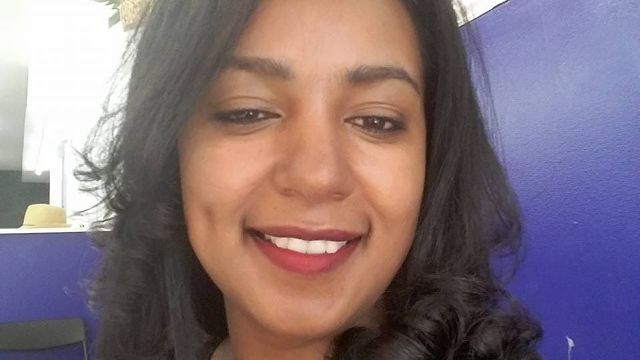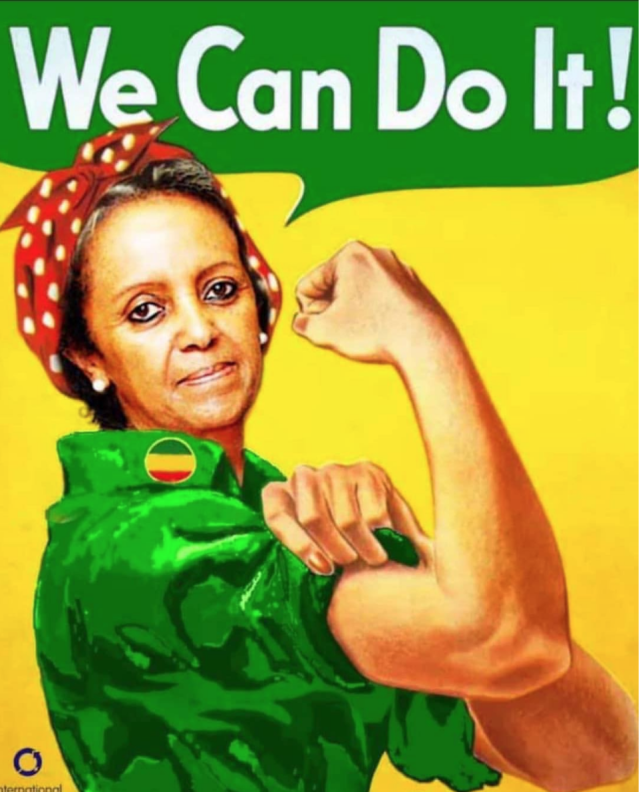 (Illustration: #MeTooEthiopia)
(Illustration: #MeTooEthiopia)
Tadias Magazine
By Tadias Staff
Published: April 16th, 2019
New York (TADIAS) — Selemawit Tefera Kelbessa — a former Ethiopian Airlines hostess who had moved to the U.S. three years ago — was the victim of a heinous acid attack by one of her roommates in Maryland in 2018, and this past week she killed herself after having been hospitalized for nearly a year. This heartbreaking news reveals the pervasive gender-based violence that remains underreported by media outlets both in Ethiopia and the Ethiopian Diaspora. However, a new and bold movement fueled by young grassroots activists has created an online platform under the hashtag “MeTooEthiopia” along with the unequivocal tagline: “Assault is a Crime, not a Culture.”
Accompanied with poignant photos and illustrations on its website the #MeTooEthiopia movement collects and shares witness testimonials that narrate the gut-wrenching processes of dealing with life-long trauma as a result of experiencing gender-based violence. The hope in this work is to break the silence around gender-based violence and prevent similar tragedies moving forward.
“Due to the severity and prevalence of such crimes, we see fit to stand on behalf of victims and bring attention to this issue,” the MeTooEthiopia organizers state on their website, emphasizing that the mission is to create awareness about “gender violence, childhood marriage and acid attack among Ethiopians around the globe” and “to provide a safe platform for victims and survivors to speak, and to connect victims with resources that can help them heal and take action.”
As BuzzFeed News highlighted in a feature last month “the spread of hashtags and testimonies across social media are forcing communities in Ethiopia and across the diaspora to confront a topic that has routinely been ignored. Created by Ethiopian American women in light of an explosive documentary about R. Kelly’s alleged sexual abuse of minors, #MeTooEthiopia has shown hundreds of Ethiopian women and men that they are not the only ones carrying trauma as victims from sexual violence.”
BuzzFeed adds that “#MeTooEthiopia acknowledges the specific cultural barriers women face when it comes to speaking up about sexual violence: the shame surrounding it, and the difficulty of empowering women in a society that denounces feminism as a Western product that has no place in Ethiopian culture.”
While the current political climate in Ethiopia has included a new wave of female participation in top posts in the political sector, including appointing a female head of the Supreme Court, a female president, as well as having half the Cabinet positions filled by women politicians, there is plenty of work left to do to protect the rights of women and girls. Describing Ethiopia’s new leader in this era, PM Abiy Ahmed, BuzzFeed notes that “many believe he could be the first modern-day leader to actively champion women’s rights in the country. But movements like #MeTooEthiopia want to send a message loud and clear to Abiy and his cabinet: Gender parity in the government is not enough if women are still getting abused.”

Selemawit Tefera. (Photo: Facebook)
Describing Selamawit’s horrific attack #MeTooEthiopia shared that “in 2018, Selemawit lived with four Ethiopian male roommates in Hyattsville, Maryland. After finishing her shift on a Saturday evening, Selamawit returned to her house. She then entered the kitchen, where she came across one of her roomates: Bekre Abdela. Abdela was holding a container of sulfuric acid. He splashed the acid on her face and body. She stayed in a hospital for several months after suffering second and third-degree burns. Before Selamawit took her own life on April 12th, 2019, she was hospitalized for nearly a year and had undergone numerous skin grafts. She had permanently lost sight in her right eye. Her left eye had a chance of recovering, restoring parts of her vision, which was a good news for her as she planned to study Information Technology. She was planning to have reconstructive surgery, however, the funds were hard to come by. That was, until people began to raise funds for that, her living expenses and other medical bills.”
In a petition hosted on the Change.org website and addressed to PM Abiy, the group also stated: “We believe this matter deserves immediate and intensified action on all levels. From education to bringing cultural evolution to providing services and resources for the victims and ensuring those who inflict such harm be held accountable for these crimes.” So far, the petition has received over 3,000 signatures.
Despite the deep sadness felt in reading the testimonials on the #MeTooEthiopia site, there is an undercurrent of perseverance, dedication and willpower that is strongly present. It is time to bring this discussion to the forefront and #MeTooEthiopia sums up this spirit with this Instagram post: “We Can Do It!”

And we should!
—
You can learn more about #MeTooEthiopia at metooethiopia.com and sign the petition at www.change.org.
Related:
Setaweet: Addis Ababa is Home to a Burgeoning Women’s Movement
Join the conversation on Twitter and Facebook.

























